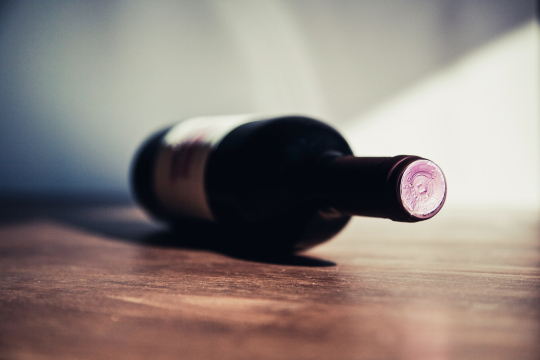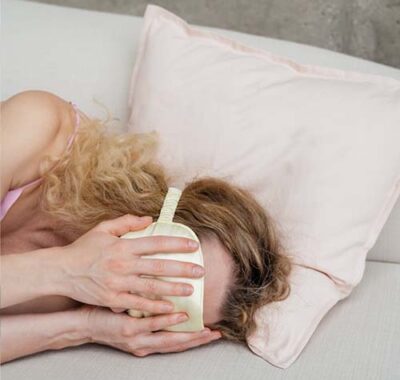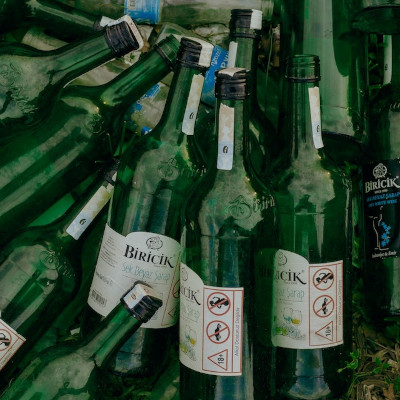
How Dangerous Is Alcohol To Treat Insomnia?

Have you spent yet another restless night chasing sleep? If you’re under the impression that a drink or two before bed will help you get those 8 precious hours, it might be time to rethink that approach. How dangerous is alcohol for insomnia? Let’s take a look.
Table of Contents:
What is and what causes it?
Every individual has their own ‘sweet spot’ for how much sleep they need each night, with the average adult requiring at least seven hours of sleep in order to reach their optimum performance the next day. Insomnia is a prevalent sleep disorder that can either make falling asleep difficult or staying asleep a challenge. It can also force you into a wide-awake mindset hours before your alarm is set to ring, hopelessly chasing the notion of getting back to sleep. Many individual factors can be looked at as culprits when trying to figure out what leads to insomnia.
Some issues that may play a role in causing insomnia include:
- Chronic diseases such as cancers and the medications that accompany treatment
- Constant pain caused by conditions like fibromyalgia or arthritis
- Stress brought on by your workplace, family issues, or financial concerns
- Severe anxiety and/or depression
- Neurological afflictions like Parkinson’s and Alzheimer’s disease
- Additional sleep issues such as restless leg syndrome or sleep apnea
Short-term, or acute insomnia, is typically brought on by a harrowing event or severe stress and anxiety and can last from a single night to upwards of a month. Meanwhile, long-term, or chronic insomnia, is often induced by a medical condition and/or medications with significant trouble sleeping at least 3 nights a week for several months.
Sufferers of insomnia often find themselves waking up feeling more worn out and fatigued than refreshed and ready to rock after leaving the cozy confines of bed. Insomnia not only depletes your energy reserves and alters your mood, but it can also seriously affect your general health and overall quality of life.
Primary Symptoms of Insomnia
Symptoms of chronic insomnia may include but are not limited to the following:
- Having issues when attempting to fall asleep and/or rising and being wide awake in the middle of your sleep cycle.
- Having trouble getting back to sleep.
- Feelings of listlessness during the following day.
- A moody or depressed mindset.
- ‘Brain fog’ and difficulty with focusing and concentration.
We often hear about the quantity of sleep needed in order to be at our best, but the quality of sleep we get each night is an integral link in the chain of a healthy lifestyle.

Over prolonged periods of time, insomnia can even lead to serious health conditions such as high blood pressure, diabetes, obesity, and depression. For those who get their nightly hours in without a struggle, it’s easy to take a good night’s sleep for granted. Those who have waged battles against insomnia, on the other hand, will assuredly have a profound recognition for just how critical sleep is for our general health and wellbeing.
Alcohol for treating insomnia: fact and fiction
Establishing healthy sleeping habits or practicing good sleep hygiene can go a long way towards making sure you get the highest quality sleep needed each night.
A drink or two at night in order to relax or induce those sleepy vibes might seem appropriate, considering alcohol can behave like a sedative. However, while medical research has shown imbibing alcohol before bed may allow healthy individuals achieve sleep quickly and to sleep deeply for a short amount of time, rapid eye movement (REM) sleep was reduced significantly after drinking, decreasing the overall quality of sleep.

The REM sleep cycle typically begins roughly 90 minutes after falling asleep. This stage is the deeply restorative sleep state where people dream. The more alcohol you consume before sleep, the more you disrupt the REM sleep cycle. This, in turn, leaves you sluggish throughout the day and with decreased reaction time and ability to focus. Alcohol should not be looked to as a healthy sleep aid or method with which to combat insomnia. While it can minimize the time it takes to fall asleep, this benefit is neutralized by the disturbances to their REM cycle and latter stages of sleep.
The importance of getting help for alcohol dependence
Being dependent on alcohol brings a wide array of damaging physical and psychological effects. Alcohol dependence is the most dangerous form of high-risk drinking and is defined as a chronic disease where the individual has insatiable and, at times, uncontrollable cravings for alcohol. They may also experience difficulties at work, school, or in personal relationships due to their need to drink. Individuals who have a dependence on alcohol are unable to manage their intake once they have begun drinking.
A person who has alcohol dependence needs to consume a greater volume of alcohol in order to achieve the same effect and typically experience painful withdrawal symptoms if their drinking is curtailed for any length of time. Essentially, alcohol dependence indicates an inability to quit drinking without encountering the symptoms of withdrawal. Many that find themselves dependent on alcohol sustain drinking in order to mitigate those agonizing symptoms.
When should you get alcohol detox?
For many people, alcohol use is not a serious issue and a drink or two doesn’t lead to significant problems. However, for those who have been consuming alcohol for prolonged periods of time and have found themselves dependent, coming to grips with the problem at hand and realizing you need help is an impactful step towards recovery.
Please keep in mind that if you are alcohol dependent, deciding to quit without help and on your own is a potentially dangerous proposition due to withdrawal symptoms. If you are ready to move away from a life of drinking, it would be a good idea to speak to a healthcare provider to see which detox treatments are appropriate.
The decision to quit drinking alcohol often brings forth major, structural changes to one’s life. If your hobbies or social functions are often anchored by alcoholic beverages, you will either need to leave them behind or find a way to augment them with activities that don’t require alcohol.

Regardless of the method or approach taken in order to deal with alcohol dependence, please know that getting help and taking control of your life is one of the most profound actions anyone can take toward leading and living a healthy life.
How is insomnia treated?
Treatments for insomnia can take many different shapes, some involving nonmedical therapy while others may require the use of medications. Let’s take a closer look at your options for treating insomnia.
DIY methods
Increase your heart rate
There is a strong connective thread between regular exercise and the quality of sleep. While not getting enough sleep often leads to a lower physical activity rate during the day, a solid exercise session during the day usually lends itself towards a good night’s sleep. Regular aerobic exercise over prolonged periods of time can work wonders on the quality of your sleep and can even minimize drowsy feelings during the day for those living with insomnia.
Establishing a sleep schedule
Set a consistent, 7 days a week schedule where you head to bed and wake up at the same time regardless of the day a week. This will help establish a clear sleep window and allow your body and mind to follow the prompts towards the bedroom.
Medications
- Benzodiazepine sedatives can help promote sleep but have shown to be highly addictive with continued use.
- Antidepressant drugs are often looked to by those with depression looking for help with sleep. It’s good to remember that antidepressants are not approved to treat insomnia and come with several side effects.
- Melatonin is a supplement that is a natural sleep aid that can be used for short periods of time to help correct sleep schedules.
Medications to treat insomnia should generally be used for short durations, with the regularity and extent used personalized to the individual’s circumstances.
Private in-home detox and addiction treatment services
Not only does using alcohol for insomnia not work, but it can also be a sign that you need to get treatment for addiction. Elite Home Detox has designed our in-home detox and addiction treatment services to accommodate the most discerning of patients – including executives, celebrities, and those who seek exceptional care and service – with complete discretion. If you’re ready to start your recovery journey, give us a call today or book an appointment using the button below!


